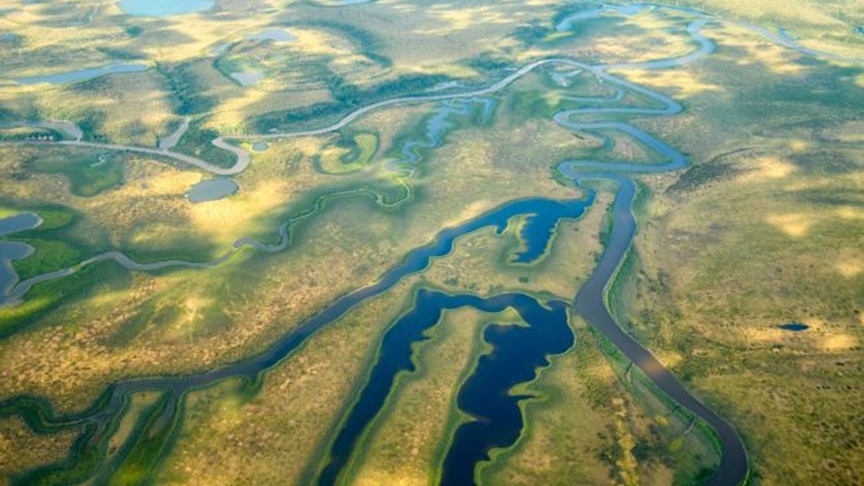Siberia — the land of black snow, blood rain and spontaneous solar eclipses — may have just set a dire new climate record. On Saturday (June 20), temperatures in the far-north town of Verkhoyansk broke 100 degrees Fahrenheit (38 degrees Celsius) for the first time, according to news reports.
If verified, that makes Saturday’s high the hottest-ever temperature documented above the Arctic Circle, The Washington Post reported.
Verkhoyansk is a town of some 1,300 residents in the Siberian Arctic, about 3,000 miles (4,800 kilometers) east of Moscow. The town has one of the most extreme temperature ranges on Earth, with winter lows hitting an average of minus 56 F (minus 49 C) and a previous all-time summer high of 98.96 F (37.2 C), according to Brittanica.com. On Saturday, several weather stations reported a new high of 100.4 F — the town’s all-time hottest temperature since record keeping began in 1885. On Sunday, June 21, the town also reported a high of 95.3 (35.2 C), showing the previous day’s heat was not a blip.
That sweltering new high (which is still being verified) arrives on the heels of Siberia’s hottest May on record, with average temperatures soaring roughly 18 F (10 C) higher than the May average from 1979 to 2019, according to a special report from the European Union’s Copernicus Climate Change Service.
This summer’s high Arctic temperatures have already affected the region. Wildfires are running rampant, with 31 fires currently burning through 885,800 acres (358,472 hectares) of forest in the Sakha Republic (the region that includes Verkhoyansk), Russia’s Federal Forest Agency reported today (June 21). Recently, Russian officials blamed an oil spill that leaked about 20,000 tons of diesel into a river in the Siberian Arctic on melting permafrost that allegedly caused the ground to sink below several oil tanks.
While remarkable, the news out of Siberia is also depressingly predictable. For years, average temperatures in the Arctic have been rising at a far faster rate than anywhere else in the world, largely due to melting sea ice induced by man-made global warming.
LIVESCIENCE / Balkantimes.press
Napomena o autorskim pravima: Dozvoljeno preuzimanje sadržaja isključivo uz navođenje linka prema stranici našeg portala sa koje je sadržaj preuzet. Stavovi izraženi u ovom tekstu autorovi su i ne odražavaju nužno uredničku politiku The Balkantimes Press.
Copyright Notice: It is allowed to download the content only by providing a link to the page of our portal from which the content was downloaded. The views expressed in this text are those of the authors and do not necessarily reflect the editorial policies of The Balkantimes Press.

